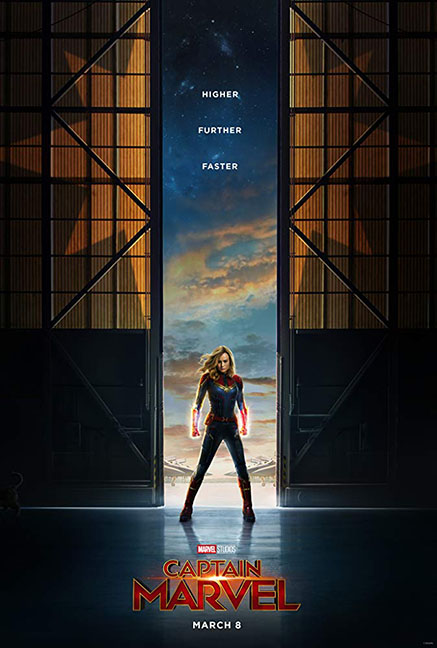The final battle in “Captain Marvel” is a one-on-one fight between our hero and the film’s primary villain. This is no spoiler. In fact, it has become a climactic necessity in our superhero expectations of the Marvel Cinematic Universe, whether the hero hails from Wakanda, Asgard, or Earth. This is the usual stuff. Except, this time it’s not quite the same. The hero this time is different. Although from Earth, our hero is a woman – Carol Danvers. The first female character to lead a film in the Marvel Cinematic Universe. At the height of the battle, goaded by the mocking words of her combatant, our hero interrupts the sequence of the fight to declare, “I don’t need to prove anything to you.” The line reverberates through the text of the film and cuts all the way into the film’s cultural value, backwards and forwards.
No one can accuse “Captain Marvel” of being unsubtle. And how could it? It’s a big-budget blockbuster in a film series that has redefined popular cinema. Cinemas across Guyana, and around the world, have overwhelmed their schedules with screenings of “Captain Marvel”, a regular occurrence whenever any film from the Marvel Cinematic Universe appears. With the weight of the series as context, the line makes sense. Marvel has nothing to prove as it continuously gets people into theatres multiple times a year looking forward to the next entry. And, yet, in another way the line is not true. For, “Captain Marvel” comes weighed down by the knowledge that it is the first film of the 21 Marvel has produced since 2008’s “Iron Man” that has featured a female protagonist. However, one cannot divorce the extra-textual noise surrounding the film, and preceding its production even, from the film. “Captain Marvel,” like the group of Avengers she precedes, is a single commodity in a larger group of commodities. Fans have a heightened sense of ownership for the Marvel films. So, lead actress Brie Larson’s push for a more diversified set of film critics beyond the usual white male reviewers has garnered criticisms from a small subset of male fans who feeling threatened by not being the centred. “Captain Marvel,” rather than existing on its own terms, arrives under an air of scrutiny. The film’s arrival cannot help but feel weighed down by all the discourse. Last April, at the end of “Avengers: Infinity War,” Carol’s presence was signalled and with its premiere preceding next month’s “Avengers: Endgame,” the existence of this film couldn’t feel more weighted. As if the existence of the series hangs on this thread. But all that weight dissipates in relation to Carol, who is on her own singular journey that, at the best of moments, feels critically removed from the noise around it.

